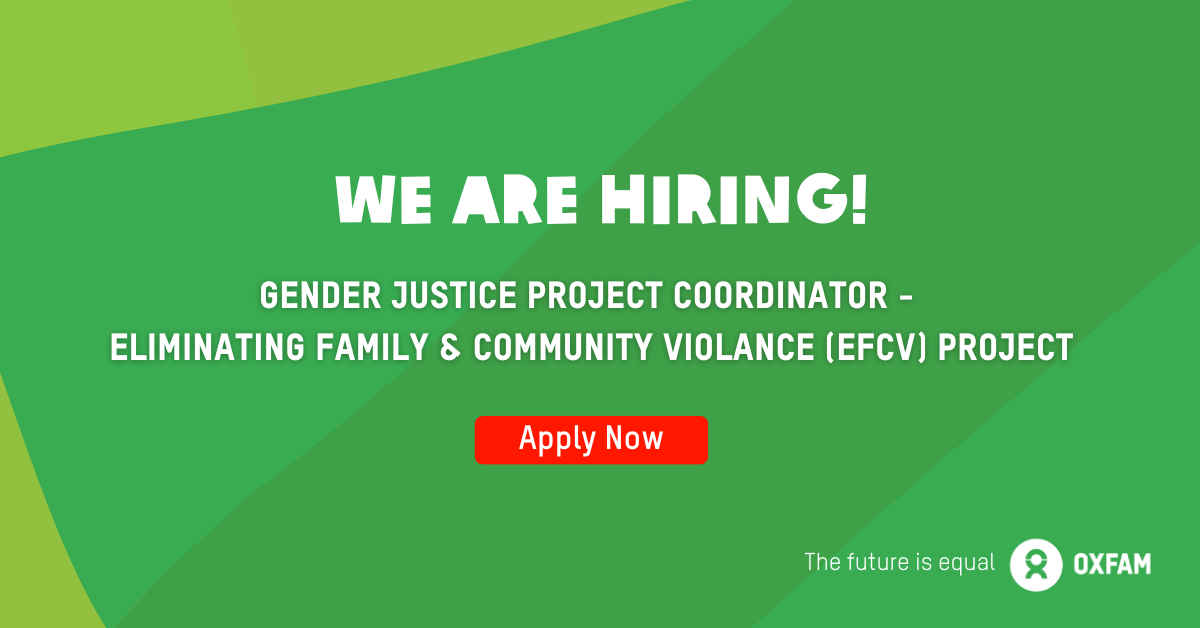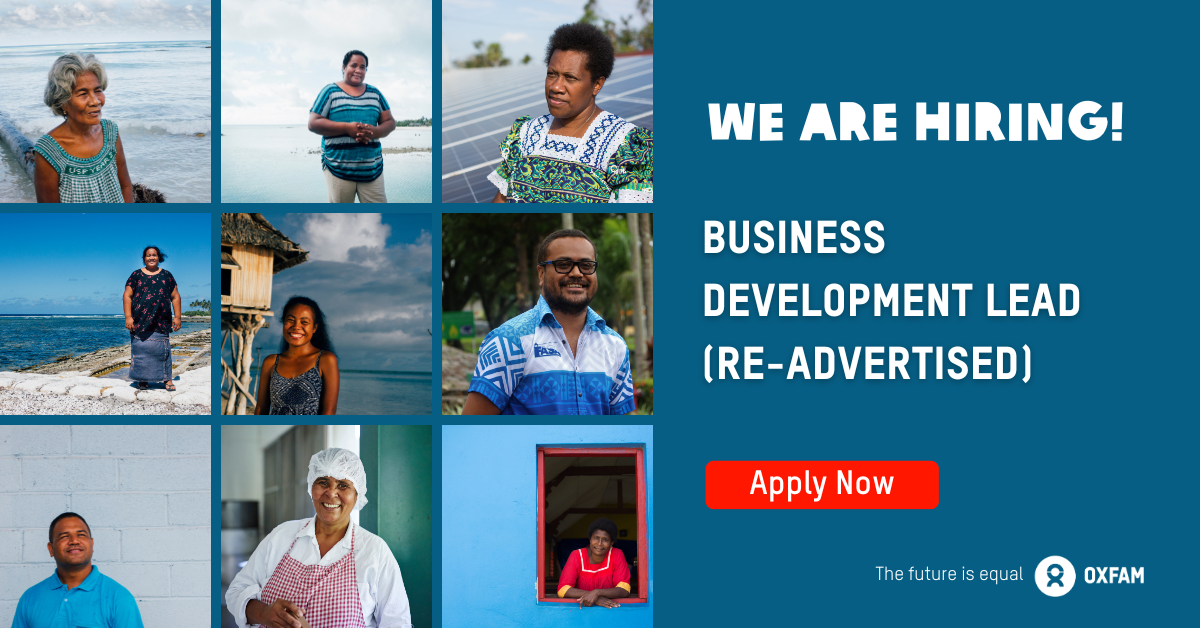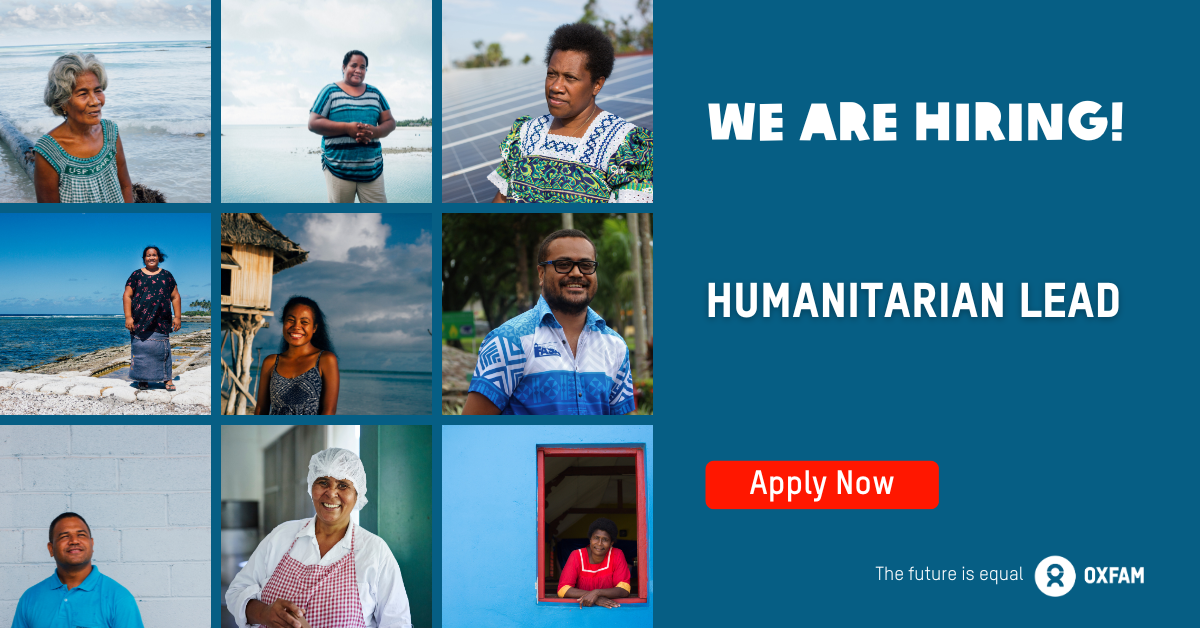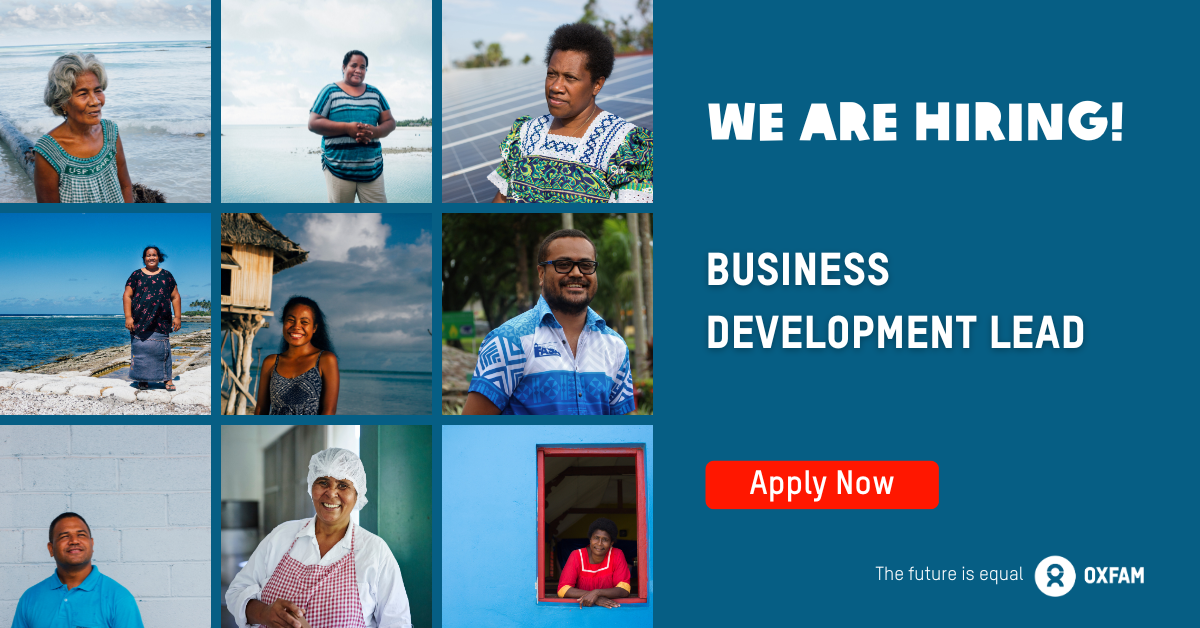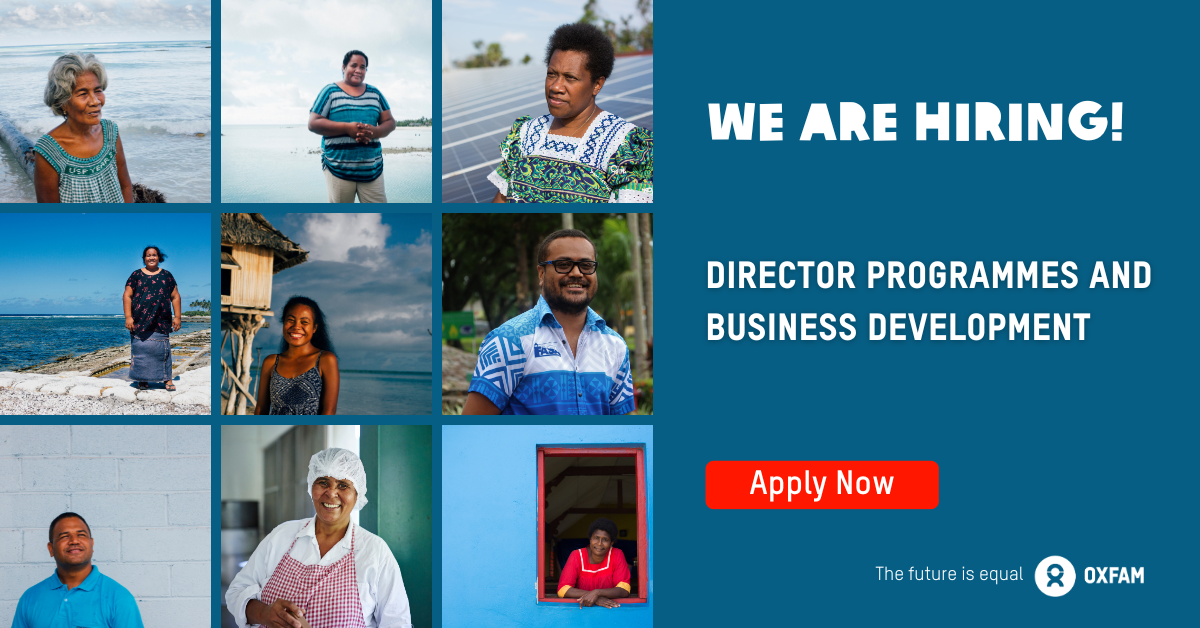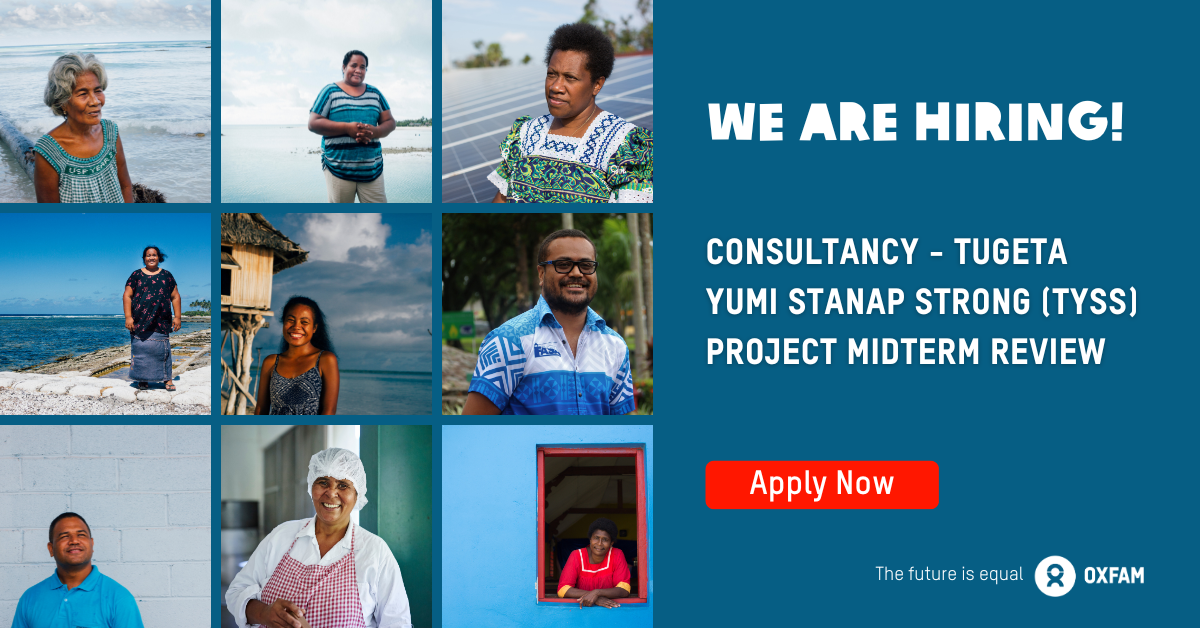- Author: Michael Upton
- Year of Publication: 2006
- Title: Strengthening Civil Society in Solomon Islands: Organisational and Network
- Development in Development Services Exchange
- Series: State Society and Society in Melanesia Working Paper No. 3
- Publisher: State Society and Governance in Melanesia, Division of Pacific and Asian History,
- Research School for Pacific and Asian Studies, The Australian National University
- Place of Publication: Canberra
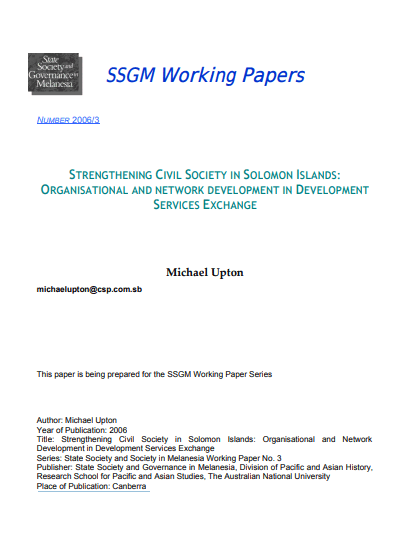
There is increasing attention given to what role civil society should play in the‘re’-
building of nation states.
Many see a strong civil society that can create a ‘demand’ for better governance as necessary for the strengthening of democratic institutions and their processes.
The rationale for what is being called ‘demand governance’ is twofold. One is the need for greater participation in planning and decision-making by those directly affected by this process. Within Solomon Islands there is a call for greater decentralisation from Honiara so as to help bridge the gap between the state and society.
This requires a people’s voice that is informed, willing, and able to participate in decision-making that can be heard from the local to the national level. The second is simply to hold the institutions and their office bearers accountable, acknowledging that addressing corruption must be driven from within a society.4
Of course, civil society plays a far broader role than this, but for such groups to play such a role requires a high level of organisation and capability. For Solomon Islands it is recognised that to achieve such an ambition will take time and efforts must be grounded in local circumstances.
In the context of these broader discussions, this paper outlines some of the current challenges to strengthening civil society in Solomon Islands. This is done by
drawing on my experience as a non-Solomon Islander working within a local Nongovernment Organisation (NGO), Development Services Exchange (DSE). NGOs are only one component of civil society and that are many other elements that make up the whole. It is assumed that the challenges faced by DSE are similar to those of other NGOs and perhaps even other types of civil society organisations and groups.
Most of the challenges identified in this paper are not new or unique to Solomon Islands. Many parallels could be drawn with the experience of community
organisations in Australia. While this story may resonate with the experiences of others, it is important to be mindful of the context in which this work has
occurred. Solomon Island’s is trying to recover from its recent civil conflict.
Since 2002 it has received vastly increased interest and presence from external actors, as well as the presence of the Regional Assistance Mission Solomon Islands (RAMSI). This situation makes it difficult to distinguish the longer-term development issues from the challenges posed by more recent events.
The paper has two parts.
Part one gives an overview of DSE, including a background on its history and the situation it had reached in 2004, and a description of the efforts to rebuild the organisation and the role that external support played in this. The second part outlines some challenges faced in undertaking ‘capacity building’ work within DSE. This is not a comprehensive analysis of a capacity building approach, rather a selection of particular challenges that were prominent at that time.
These challenges have been organised into, practice issues at the micro level; difficulties relating to organisational development; and more generally challenges to strengthening civil society in Solomon Islands. Broader development issues faced by Solomon Islands, and the motivation and goals of ‘development’ are beyond the scope of this paper.

